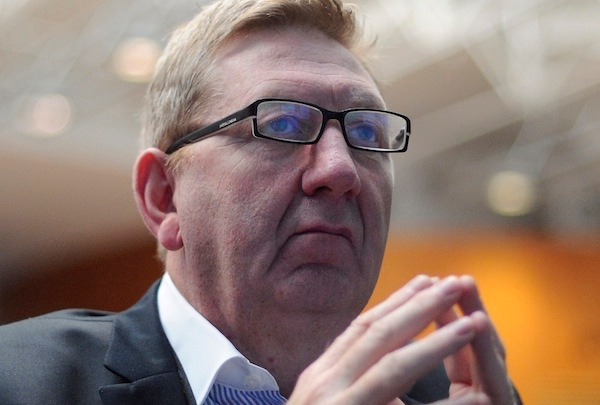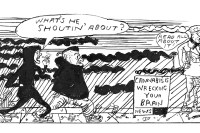Ed Miliband’s speech today isn’t an attempt to close down the row over Falkirk, but to get back on top of the issue, rather than appearing to be bounced along by events. What it will do is open a huge row with the union bosses: one the Labour leader needs to be seen to have won at the end of it all. Here is a briefing on what to expect from Miliband. The Tories are pleased this morning that Len McCluskey has written in this morning’s Guardian that ‘switching to an “opt-in” for the political levy wouldn’t work… would debilitate unions’ ability to speak for our members and would further undermine unions’ status as voluntary, and self-governing, organisations’. Billy Hayes of the Communication Workers Union, meanwhile, criticised the plans for primaries, and said the reforms were ‘about dog whistles’ when he appeared on the Today programme. This means, the Conservatives argue, that they are dead in the water before Miliband has even given the speech.
Whether or not this is true, Miliband’s intervention has prompted McCluskey to turn on the right of the Labour party again. This happened last year when the GMB union tried to have Blairite group Progress banned from the party. The Unite General Secretary writes in today’s op-ed:
‘The scandal about Labour party selections goes far deeper. The present uproar arises solely because Unite has started to have some success in pushing back against what the right wing has been doing unchallenged for years. It is time the spotlight was turned on the activities of Progress, largely funded by Lord Sainsbury, which has been sparing no expense to get its candidates adopted. The Sainsbury “block vote” has been used to create a parliamentary Labour party that does not look like, or think like, the broader party.’
He adds:
‘Of course, funding does not exhaust the ways in which the right wing has manipulated selection procedures. Every manoeuvre has been deployed, often with the assistance of Labour headquarters, to parachute favoured candidates into safe seats, with the constituency party bypassed. Until our Blairite critics face up to the serial abuses of party democracy associated with the New Labour years, they cannot be taken seriously as reformers. They simply want to carry on using parliamentary seats as patronage tools as before.’
This debate isn’t just going to be about who runs Labour: it’s going to go back to infighting about who owns Labour, who is a sincere Labourite, and who is the cuckoo in the nest. And those sorts of identity battles will be extremely damaging in the run-up to the party’s conference. They will make it more difficult for the party to have a reasonable debate about policy or persuade voters that it is ready for government.







Comments